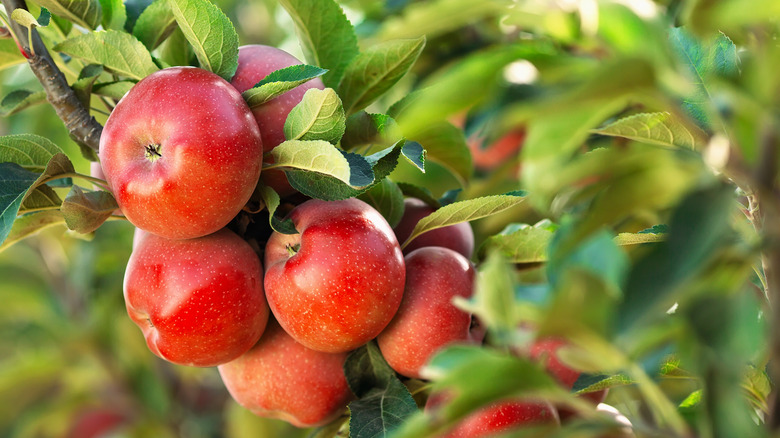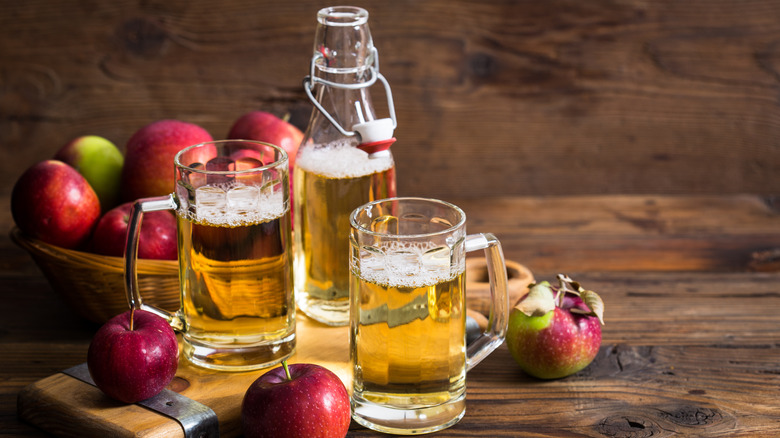The Real Reason People Used To Avoid Eating Apples
"An apple a day keeps the doctor away." It's an old adage you've probably heard since childhood, yet up until 100 years ago, it carried little truth to it. Believe it or not, people actually used to avoid eating apples because of their flavor. As The Daily Beast notes, apple trees are "extreme heterozygotes," meaning they have highly variable genetics. A tree grown from Gala apple seeds will not necessarily bear Gala apples. It will sprout a genetically randomized fruit, which is likely to be small and sour.
Fortunately, there is a way to bypass the genetic lottery and guarantee that your apple trees bear edible fruit. According to Smithsonian Magazine, the ancient Romans pioneered a form of selective breeding called "grafting" that apple farmers still use today. The grafting process entails taking leaf buds from a successful apple tree and attaching them to the rootstock of a new tree (via University of New Hampshire). When white colonists first arrived in the Americas, they were unable to continue grafting European apple varieties in the new climate, and it took centuries for new American cultivars to develop.
Apples used to be reserved for cider
Even before grafting became a widespread practice, people still cultivated apple orchards for one simple reason — cider. It was a staple beverage dating back to ancient times, with another Smithsonian article reporting that cider was consumed in the British Isles at least as early as 55 B.C. The drink would go on to find its greatest success in colonial New England, where the land was unfit for growing the grains and barley necessary for beer-making, but apple orchards prospered.
Cider played a significant role in the diets of colonial Americans, sometimes serving as the main beverage where clean water was unavailable. According to the National Museum of American History, the average colonist would consume about 15 gallons of cider each year. At that time, cider meant hard cider, as the beverage was always fermented for the purpose of preservation.
Thankfully, increased access to clean water has made consuming alcoholic beverages an option rather than a necessity. However, in 1920, the U.S. challenged this fact when prohibition was enacted, and apples got a surprising boost in the process (via Library of Congress). As Smithsonian recounts, during the prohibition era, FBI agents would routinely chop down whole orchards of apple trees they suspected would be used for cider. This meant that any small, sour apples got the axe, and only the large, sweet varieties grown by grafting were allowed to propagate.

